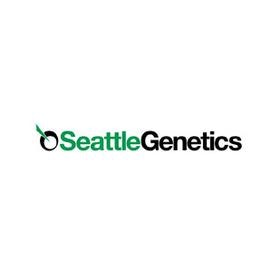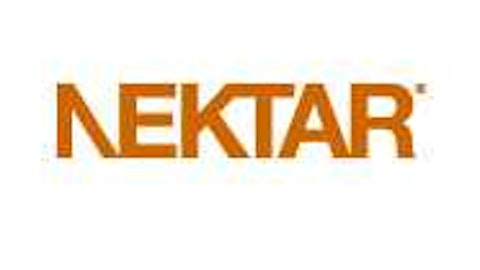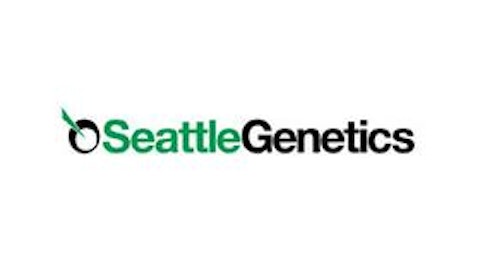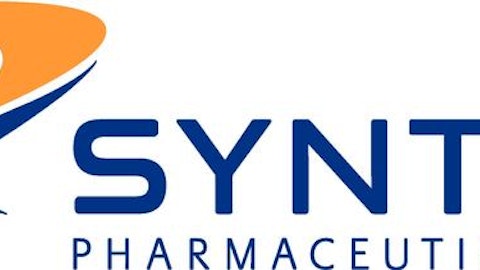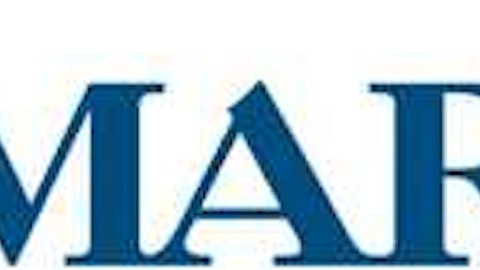Anticancer drugs typically damage normal cells as well as cancer cells. Using a breakthrough technology, a midsize biotech company is developing a process to deliver anticancer drugs right inside a cancerous cell, selectively destroying it while sparing healthy cells. If successful, this will become a technology worth billions of dollars.
Monoclonal antibodies vs. conjugated antibodies
Monoclonal antibodies, or mAbs, block specific proteins that help cancer cells to grow. They may also boost the immune system of patients to fight against cancer cells. However, at present, they may not be as effective against large tumors as anticancer drugs.
Anticancer drugs, on the other hand, are very effective against large tumors. However, they have too much collateral damage. They destroy not just the disease, but also the patient, because they do not work in a targeted manner.
ADC technology
The new technology being developed by Seattle Genetics, Inc. (NASDAQ:SGEN) among others, combines an mAb with an anticancer agent to create an entity called an antibody drug conjugate, or ADC. This combination selectively targets the protein found in cancer cells. In this manner, called the multiplier effect, it limits the damage done by an anticancer drug only to its real target, the cancer cell.
Seattle Genetics, Inc. (NASDAQ:SGEN) has developed Adcetris using this technology. It’s the only product approved by the FDA for treatment of patients with Hodgkin’s lymphoma and anaplastic large cell lymphoma (ALCL). The same molecule is going through nine other development programs for different cancer diseases. In addition, the company has four other ADC programs in the pipeline for targeting other forms of cancer.
Partnerships
Recently, Seattle Genetics signed a $520 million agreement with Bayer AG for its ADC technology. Under this contract, Seattle Genetics, Inc. (NASDAQ:SGEN) will receive $20 million as upfront payment for global rights to its technology, and $500 million as milestone and royalties on sales of its technology for several cancer diseases. Bayer will be responsible for R&D, manufacturing, and marketing of all products under the agreement.
Apart from Bayer, Seattle Genetics, Inc. (NASDAQ:SGEN) already has strong partnerships with leading pharma companies to support most of its pipeline products. Going forward, the company is expected to generate more than $3.5 billion in milestones and royalties from strategic alliances.
Prospective market
The overall oncology market is dominated by mAb therapies. The global mAb market is currently growing at a CAGR of 12% and likely to reach $32 billion by 2017, according to GBI Research. In the coming years, the ADC technology is expected to dominate the market, thanks to its enhanced efficiency and reduced side effects.
Currently, Adcetris and Kadcyla are the only two approved products based on ADC. Kadcyla was recently approved by the FDA. On the other end, Adcetris posted $36.4 million in sales in the first quarter of 2013, and expects to sales to keep rising this year.
Competition
Seattle Genetics, Inc. (NASDAQ:SGEN) mostly competes with ImmunoGen, Inc. (NASDAQ:IMGN) in developing ADC technology. ImmunoGen has one approved product and nine product candidates in various development stages. ImmunoGen licensed some of the technology that went into creating cancer treatment Kadcyla to Roche’s Genentech.
Kadcyla sales were $19.5 million in the third quarter of 2013 and will increase further with expected US approvals for other indications. Following the FDA approval of Kadcyla for breast cancer on Feb. 22 of this year, ImmunoGen, Inc. (NASDAQ:IMGN) is slated to receive $10.5 million from Roche.
Conclusion
Although this is early days for ADC, the success of the two thus-far approved drugs tells me that this technology is here to stay and prosper.
It has its problems: limited effectiveness for solid tumors, a limited number of anticancer molecules that can use the technology, and side effects resulting from continuous use. However, drug companies like Seattle Genetics, Inc. (NASDAQ:SGEN) are vigorously addressing these issues, and I see more approvals and larger sales and licensing fees coming its way in the future. My optimism is apparently shared by Big Pharma, which is lining up to form partnerships with Seattle Genetics.
The article A Billion-Dollar Anticancer Technology in the Making originally appeared on Fool.com and is written by Dr. Kanak Kanti De.
Dr. Kanak Kanti De has no position in any stocks mentioned. The Motley Fool recommends ImmunoGen and Seattle Genetics. Kanak is a member of The Motley Fool Blog Network — entries represent the personal opinion of the blogger and are not formally edited.
Copyright © 1995 – 2013 The Motley Fool, LLC. All rights reserved. The Motley Fool has a disclosure policy.
